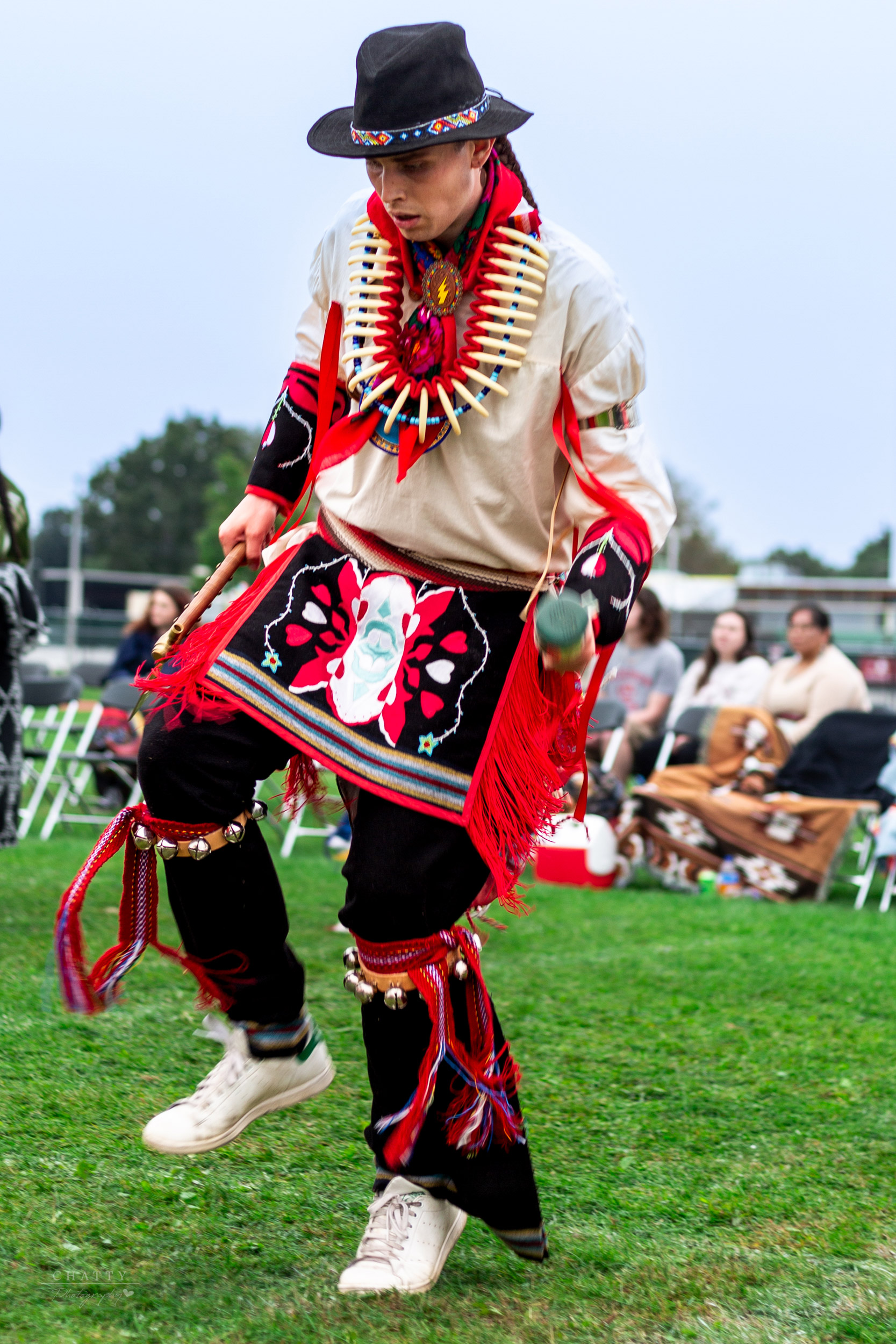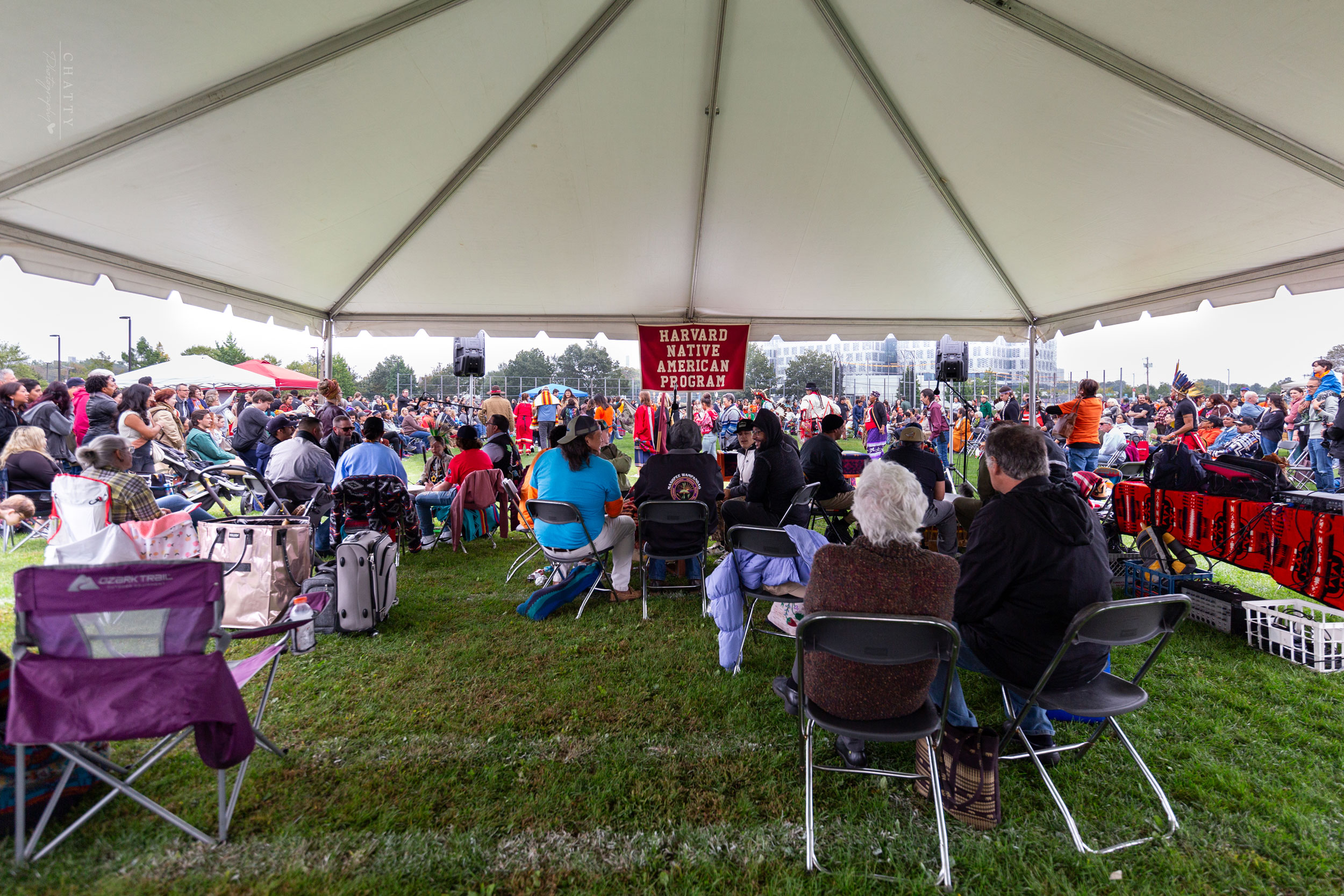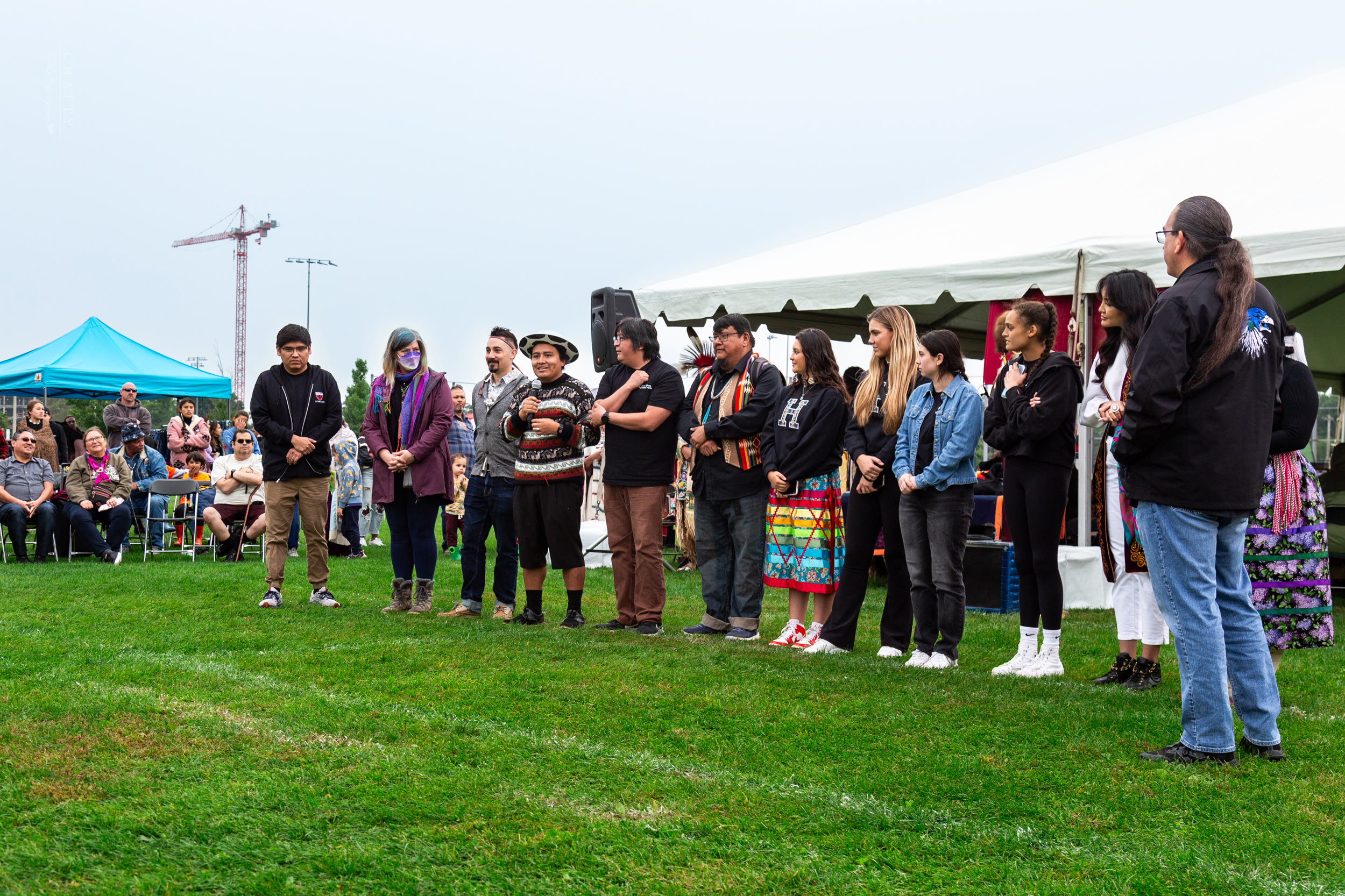‘We are not people of the past’
Annual Harvard Powwow brings Native students, others from neighboring Indigenous communities together to connect, celebrate roots

Kabl Wilkerson, who crafted their own regalia, performed a traditional dance at the Harvard Powwow.
Photos by Catherine Dondero/© ChattyPhotography, LLC
Every part of preparing for the 25th annual Harvard Powwow was personal for Kabl Wilkerson.
The third year Ph.D. candidate and member of the Citizen Potawatomi Nation learned what it meant to be Native from their grandmother Mary Ruth, an artist who helped raise them. After her death a year ago, Wilkerson spent their spare time crafting regalia and learning to dance the men’s woodlands style at powwows to honor her memory.
“She was somebody who fought really hard for us to be Potawatomi. She was proud of who she was and helped teach me who I was, and for that I miss her every day,” Wilkerson said.
Three years after the COVID-19 pandemic forced a hiatus, the Powwow returned to campus last Saturday to allow students like Wilkerson to honor their families, connect with other Indigenous communities, and reconnect with their roots. Organizers say the event reflects the University’s continued responsibility to and support of Native communities, as dictated by the Harvard Charter of 1650.
“Harvard Powwow is an important moment for our community, because it allows our Native folks to share their pride and culture, brings together the native community in our area, and reminds the larger Harvard community of our existence,” said Jordan Clark, a member of the Wampanoag Tribe of Aquinnah and assistant director of the Harvard University Native American Program.
“It pulls people’s thoughts from the past into the present and allows our students to showcase what makes us special and unique,” he said. “It is an honor to host this event and look forward to stewarding this event into the future.”
Hosted at the McCurdy Outdoor Track, the powwow welcomed hundreds of attendees from Harvard and neighboring Native communities. Held on Orange Shirt Day, the Powwow honored survivors and victims of residential schools throughout Canada and the U.S., which sought to separate Native children from their families and forcibly assimilate them.
Chris Newell of the Passamaquoddy Tribe and Arena Director Jonathan Perry of the Wampanoag Tribe of Aquinnah emceed the daylong celebration that included performances led by head lady dancer Kendra Eaglestar of the Jemez Pueblo and Atsa Zah of the Narragansett, with the Iron River Singers serving as the host drum.

Grand Entry, the official start of Powwow, opened the afternoon events with a prayer by Margaret Pezendewatch Cote, an Algonquin elder from the Kitigan Zibi Anishinabeg First Nation, the procession of flags, and dancers decked in intricate regalia unique to each tribe circling the arena as they slowly made their way to the center. Intertribal dancing continued to the beat of songs performed on large, wide drums by the Red Hawk Singers and the Utah Singers as guests of all ages joined the celebration.
“It is amazing to see the cultural gathering of all of our people from multiple states around the area and see people come together to celebrate all different types of Native culture, and to see modern Natives who are able to be here on campus and show that we are not people of the past,” Mia Linson ’26 said.
The sophomore, whose family is of the Navajo Nation in New Mexico, said the powwow was a great way to get involved with fellow Native people. “I brought a lot of my friends from the College here who had never experienced something like this. I’m glad to share my culture like this,” she added.

That message was shared by classmate Dakota Degenhardt ’26, who was a member of the Powwow student planning committee. Degenhardt, a member of the Turtle Mountain Band of Chippewa Native Americans, said the event highlighted that Native people “are still here and that our traditions are still happening and are being passed down from generation to generation.”
“Powwows bring people together with song, dance, food, and joy,” she said. “Our Powwow is centered around protecting Indigenous futures.”
The Powwow also allowed students like Alexander Bradley Canales, a graduate student at the Harvard Extension School and the Harvard Kenneth C. Griffin Graduate School of Arts and Sciences, to reconnect with their Native roots. “This is very important for me to establish my identity within the tribe that my family has very deep roots to,” he said.
Canales’ family is originally from Valparaiso, Chile, and are Mapuche, an Araucanian people. They fought hard to establish an American identity but are now learning more about the Mapuche and their Native language, he said. Canales encouraged others at Harvard learning about their Indigenous ancestry to let go of their fear and know that “we’re a welcoming community.”
“My hope for the Harvard Powwow is that it grows and that it becomes as strong as the Native community that’s already present here, but that it also inspires students to come to Harvard and see there is a vibrant and strong Native community,” Wilkerson said. “I hope that it can inspire students to see that Harvard is a place where Native students belong.”




